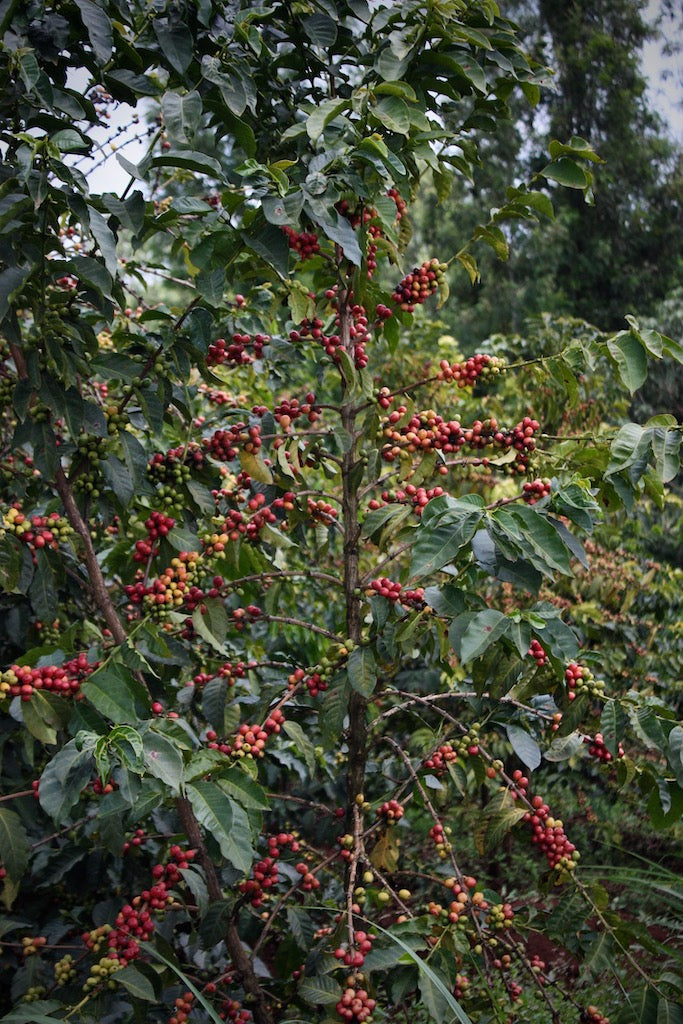Mutitu AA Espresso
Espresso • Fruity & lively
Classic Kenyan with vibrant and bold notes of blackberry, red currant and subtle peach.
Producer: Mutitu Coffee Factory • Smallholder Farmers
Region: Kathekiini, Kirinyaga
Altitude: 1200–2000 MASL
Variety: Batian, SL28, SL34, Ruiru 11
Process: Washed
Washed process
The smallholder members handpick the coffee and deliver it to the factory for pulping. Initially, the dense beans are separated from the immature ‘mbuni’s (floaters) using water floatation, causing the denser beans to sink and reach the fermentation tank.
The first stage of fermentation lasts for approximately 24 hours. After this, the beans are washed and moved to the secondary fermentation tank for 12-24 hours. Following the fermentation process, the beans enter the washing channels to separate floaters further and clean the dense beans from mucilage.
Next, the washed beans are placed in soaking tanks to sit under clean water for up to 24 hours. This soaking process allows amino acids and proteins in each bean's cellular structure to develop, resulting in heightened acidity and complex fruit flavours in the final cup. This soaking process contributes to the flavour profiles for which Kenyan coffees are well-known.
The beans are then transferred to initial drying tables, where they are laid in a thin layer to allow for quick removal of around 50% of the moisture. This initial drying phase can last about 6 hours before the beans are gathered and arranged in thicker layers for the remaining 5-10 days of the drying period. The dry parchment coffee is subsequently delivered to a private mill and placed into ‘bodegas’ to rest. These "bodegas" are raised cells made of chicken wire that allow the coffee to breathe fully.













